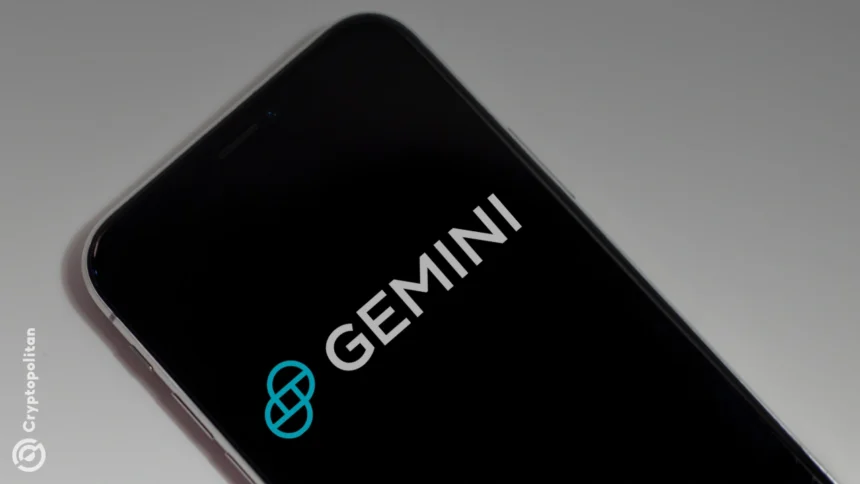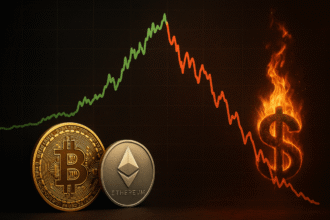
Gemini Space Station, the cryptocurrency exchange founded by Tyler and Cameron Winklevoss, reported a larger net loss than analysts expected on Monday in its first financial results since going public.
The company reported a loss of $6.67 per share, compared with the expected loss of $3.24 per share from analysts surveyed by Bloomberg. Gemini, which debuted on the public market in September, has seen its stock price fall by almost half from its all-time high amid a widespread decline in crypto prices.
Gemini’s GEMI stock quickly plummeted more than 11% in after-hours trading after the earnings release, hitting a new all-time low below $15, according to CNBC data.
Still, Gemini’s revenue still increased significantly. Net revenue for the quarter was nearly $50 million, an increase of 52% from the prior quarter. The company reported that more than $26 million came from transaction fees and about $20 million from services such as credit cards and institutional staking. The company’s adjusted EBITDA was -$52.4 million, indicating that growth did not outpace expenses. Trading volume increased 45% sequentially to $16.4 billion, an increase of nearly 50% sequentially, driven by large moves by institutional investors.
Gemini’s services revenue soars as it expands into new markets
according to revenue reportGemini is adding new features and expanding into new regions. A self-custody wallet was introduced this quarter, and the company also received a MiCA license in Europe in August and launched operations in Australia in early October as part of its regulatory expansion strategy.
Services revenue now accounts for nearly 40% of Gemini’s total revenue, compared to less than 30% just a year ago.
Gemini Credit Card has opened more than 100,000 accounts, transaction spending has doubled from last quarter to more than $350 million, and staking balances have increased to $741 million.
After going public, the company paid down debt and opened a $150 million line of credit against credit card receivables to improve capital efficiency.
For the full year, Gemini expected service and interest income to be in the range of $60 million to $70 million based on continued growth in credit cards and staking.
The company is also entering new business fields. It works on a prediction market where users can bet on political and sports outcomes. We launched tokenized US stocks, allowing users to gain exposure to stocks through blockchain representation.
But analysts at Goldman Sachs wrote in October that Gemini’s credit card expansion “poses both credit and interest rate risks in an economic downturn,” noting that financial pressures could increase if consumer defaults increase or credit conditions tighten.
Winklevoss’ political activities raise reputation concerns
Mr. Cameron and Mr. Tyler are also politically active outside of their company’s finances. In August, it donated $21 million to political action committees supporting President Donald Trump and the Republican Party’s pro-cryptocurrency policy goals.
They also attended multiple events at the White House, including a donor reception in the new ballroom.
From a valuation perspective, the company’s parent company Gemini Space Station currently trades at a price-to-sales ratio of 13.9x, which is significantly higher than the 3.8x average for both sector peers and the broader U.S. capital markets industry.
The stock’s last close was around $16.18, and if you do the math, you’ll see that even though Gemini is still unprofitable, this price means investors are paying a hefty premium for every dollar of revenue…technically speaking.
The gap between high valuations and continued losses accelerated the sharp decline in stock prices after the announcement of financial results.
Mentorship + Sharpen your strategy with daily ideas – 30 days free access trading program






